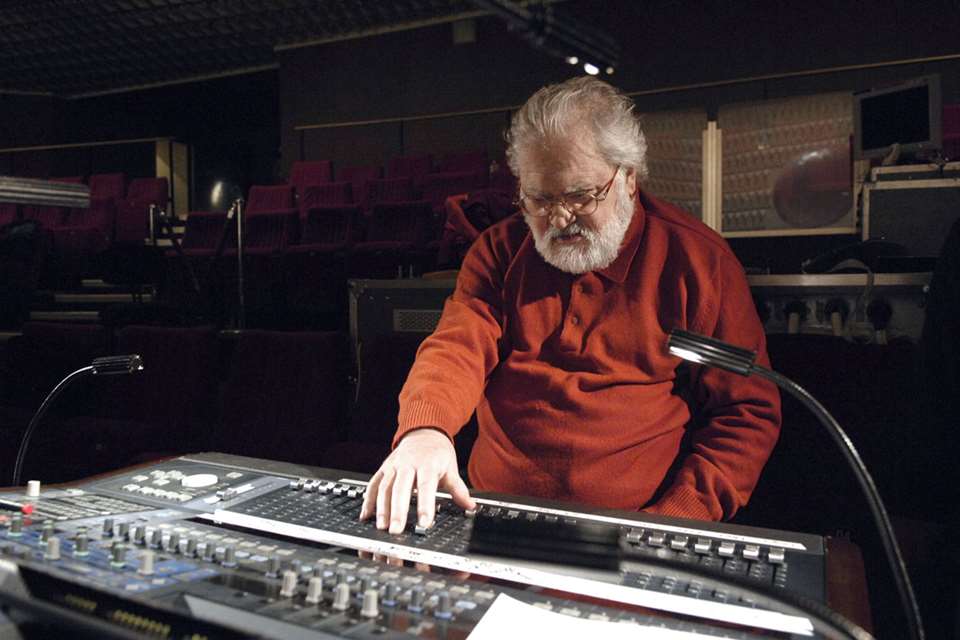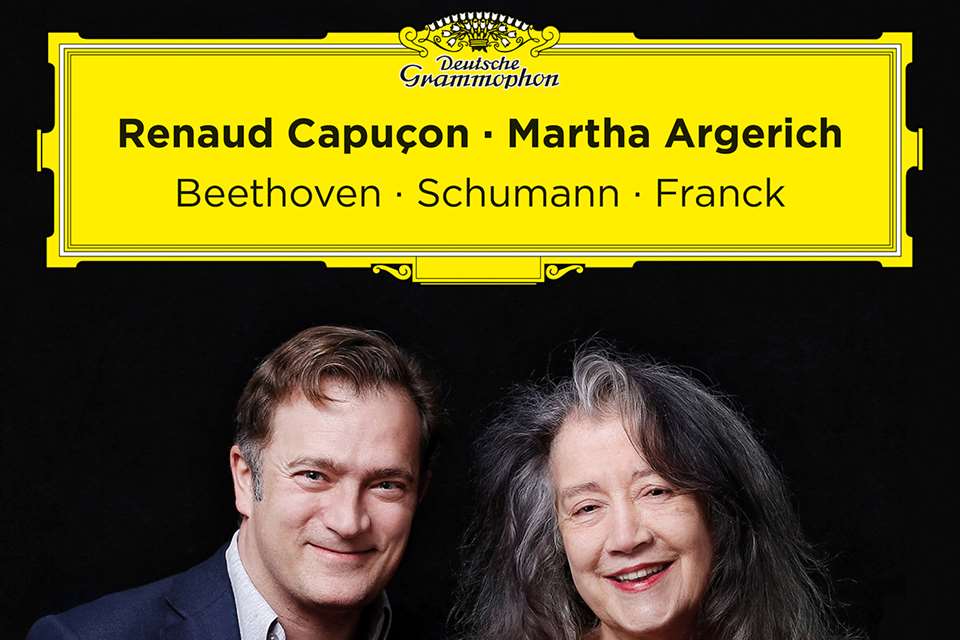Coventry University celebrates electronic music pioneer Delia Derbyshire
Hattie Butterworth
Monday, September 26, 2022
As Coventry University's arts faculty is named in her honour, we look back at the life and legacy of electronic composer, Delia Derbyshire
Coventry University is to name its flagship new Faculty of Arts and Humanities building after legendary music icon and former Coventry resident, Delia Derbyshire.
The building will represent a major transformation of the university’s arts and humanities facilities, presenting immersive studios with the latest virtual reality and mixed reality technologies. It is therefore highly appropriate that it should be named in celebration of one of the cities renowned artists in that field.
Who was Delia Derbyshire?
Innovative musician and composer of electronic music, Delia Derbyshire was born in Coventry in 1937 and is best known for her pioneering work with the BBC’s Radiophonic Workshop. Her realisation of the famous Doctor Who theme music remains an important feature of electronic music today and earned her a place among the most important electronic musicians of the 20th century.
Growing up in a working class family in a city infamously ravaged by bombing, echoes of the Blitz pervaded much of her later work. Although perhaps the first composer at the BBC to show that 'radiophonics' could be beautiful, she was also unafraid to be unsettling and menacing with her creations.
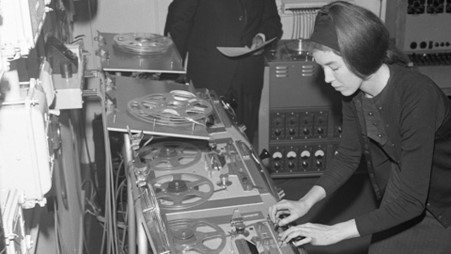
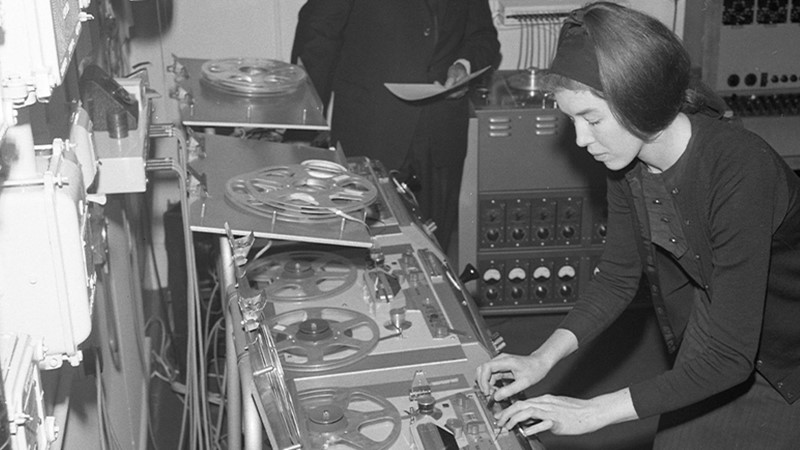
Image via The Tully Potter Collection
Academically gifted in both music and mathematics, Derbyshire won a scholarship to Girton College, Cambridge. After being subsequently rejected by Decca, where she was told that women were not employed in their studios, she joined the BBC in 1960 as a trainee assistant studio manager. It was here at the BBC, across 1963 and 1964 that she created her significant arrangement of the Doctor Who theme, which would contribute massively to the growing public awareness and appreciation of electronic music in Britain.
Derbyshire's collaboration with dramatist Barry Bermange in 1964 and 1965, on Inventions for Radio would enable her to develop her ideas on a much larger canvas. Combining electronic music soundscapes with a collection of interviews with members of the public, Derbyshire worked with Bermange on the editing of voices and created evocative music for each of the Inventions. One of the Inventions used manipulated resonances of recordings of a metal lampshade being struck, one of Derbyshire's favourite sound sources, and the entire score of another, Amor Dei, was derived from the recording of a boy chorister.
She also collaborated extensively with major figures in Britain's arts scene, ranging from Peter Hall and the Royal Shakespeare Company to Yoko Ono and poet Ted Hughes. These collaborations stretched into the 1970s to include pioneering artists Elsa Stansfield and Madelon Hooykaas.
Her later life post-BBC has often been characterised as a tragic long decline into poor health, the traumas of the war revealing themselves in an ongoing struggle with alcoholism. Still, she continued to work on music in private up until her death in 2001, although her public output reduced to the point where it seemed to that she had ceased to create.
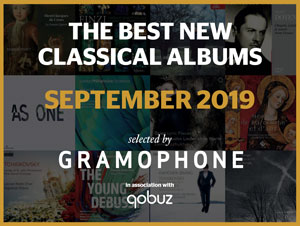
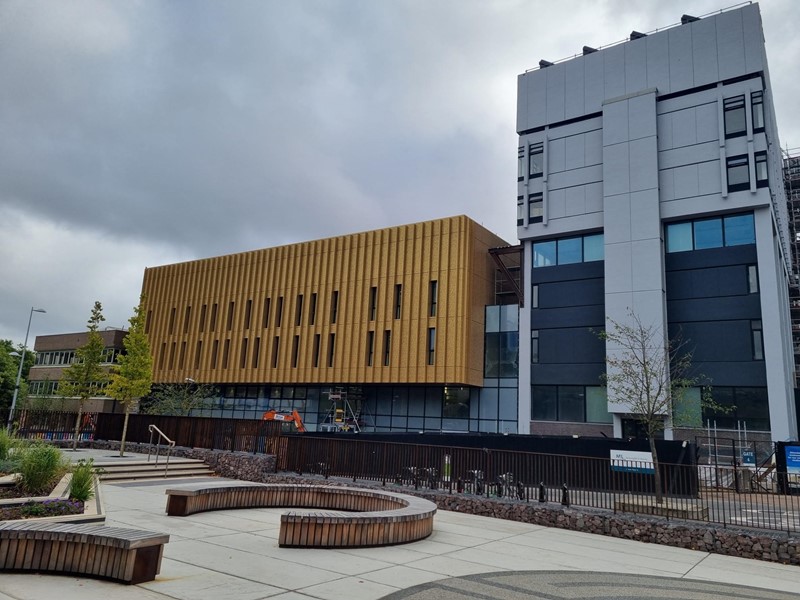
Image of the Delia Derbyshire Building via Coventry University
Coventry’s new complex will also be open to the public with a gallery space, café and events atrium where students, staff and visiting artists can showcase their work to members of the community, inspiring future generations of practitioners and audiences to enhance creative spirit.
David Butler, trustee of the music charity Delia Derbyshire Day, said: ‘Delia Derbyshire changed the way (people) think about sound and the sonic possibilities in the world around us. Delia found beauty in the everyday, transforming the familiar into something extraordinary.
'The new Delia Derbyshire building in the Faculty of Arts and Humanities at Coventry University will continue Delia's example, through outstanding facilities across the arts and a commitment to overcoming boundaries of exclusion by realising the creative energy in us all.'




